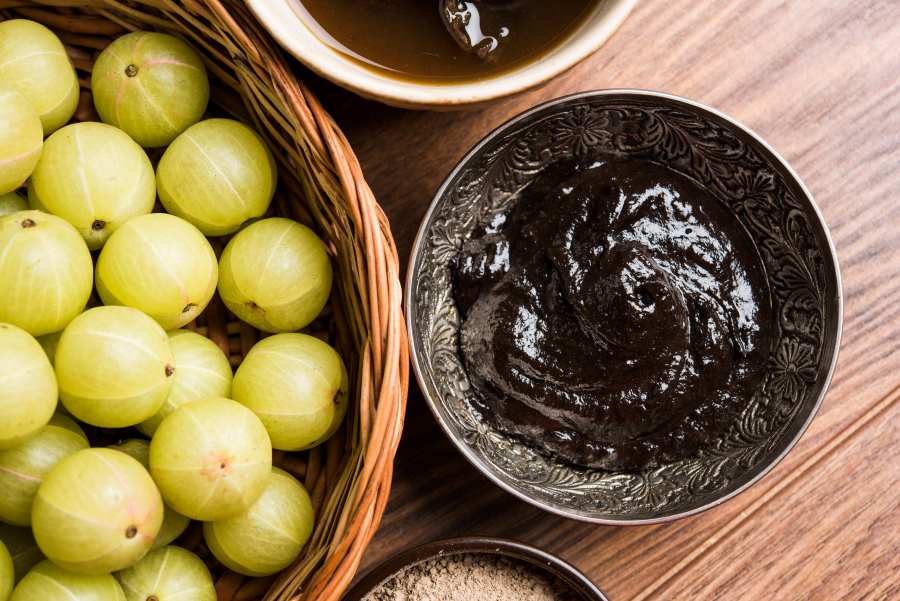How to Do Virechana Panchakarma Treatment Procedure?

Virechana is one of the five cleansing processes of Panchakarma. Also known as the purgation process, it focuses on the torso region of the body. Virechana helps the body eliminate toxic doshas with laxative oils and drugs. It treats diseases from pitta doshas, like diabetes, chronic skin disease, migraine, and colitis.
Like any other Ayurvedic treatment, Virechana begins only after a disease is accurately determined. Read to the end to learn everything about Virechana in Panchakarma.

Table of Contents

What is Panchakarma?
Panchakarma comes from the Sanskrit words ‘Pancha’, which means five, and ‘Karma’, which means treatment or procedure. According to Ayurveda, these therapies are meant to keep the body free of toxins, balance the Doshas, and preserve regular physiological processes.
Depending on the patient, the length of Panchakarma treatment varies and considers aspects such as age, strength, and type of sickness. When used in a respectable Ayurvedic medical facility, panchakarma provides substantial relief.
The following are the five main Panchakarma treatments:
- Vamana (Throw up for health reasons)
- Virechana (Therapeutic cleanse from the inside)
- Anuvasana Basti (An enema, but with oil or ghee, or both)
- Aasthapana Basti (A kind of herbal decoction enema)
- Nasya (Cleaning your nasal passages or putting meds up your nose)
What is Virechana Treatment?
Among the panchakarma treatments of Ayurveda, the primary approach of vivechana stands out. It primarily addresses pitta-dominant imbalances, which include blood pollution and skin problems. Laxative medications are used in this purifying procedure to clean the pitta-influenced intestines.
It seeks to remove excess bile toxins from the body's midsection and toxic waste from essential organs such as the liver, gallbladder, and intestines. When used correctly, Virechana can treat intestinal colic, asthma, jaundice, gastritis, ulcers, and IBS.
Types of Virechana Treatment
Virechana treatment is broadly classified into the following two types:
1. Snigdha Virechana

Snigdha means 'oil'. As evident from the name, castor oil is used during this treatment. Castor oil can be used alone or with Haritaki fruit powder. Snigdha Virechana helps reduce ailments associated with both Pitta and Vatta doshas.
Benefits:
The key benefits of Snigdha Virechana, along with the balancing of Pitta and Vata dosha, include:
- Toxins from the gut and body are removed; hence, the body remains completely free of waste toxicity.
- Pacifies the imbalanced Pitta and Vata doshas; hence, it is helpful in conditions with excess heat and dryness in the body.
- Regular bowel movements ensure good digestion and prevent constipation, bloating, and gas.
- This can clear toxins and improve skin clarity and texture, helping with conditions like acne and other skin irritations.
- As it balances Vata dosha, it helps to reduce stress and anxiety and restore mental calmness.
- It may help to reduce stiffness of joints and muscular pain caused by the imbalance of Vata.
- It may help to reduce stiffness of joints and muscular pain caused by the imbalance of Vata.
2. Rooksha Virechana

This treatment is very helpful when Kapha dosha, along with Pitta dosha, is diagnosed. During Rooksha Virechana, practitioners use a medicine extracted from the Trivrit herb to induce controlled purgation, promote detoxification, and restore dosha balance.
Benefits:
It is aimed at balancing excess Kapha and addressing conditions associated with moisture and heaviness in the body. Here are some key benefits of Rooksha Virechana:
- It helps reduce excess kapha, which can cause issues like congestion, heaviness, and excess mucus.
- Promotes regular bowel movements, eliminating waste and toxins and improving overall digestive health.
- It helps alleviate symptoms related to fluid retention, such as bloating and swelling.
- Clearing excess kapha and toxins can boost metabolism and increase energy levels.
- It may assist in weight management by addressing kapha-related weight gain and promoting a balanced metabolism.
- It can help reduce symptoms associated with respiratory conditions like sinus congestion and bronchitis, often linked to excess kapha.
- Eliminating toxins and balancing Kapha may contribute to more precise, healthier skin.
What are the Purposes of Virechana Treatment?
Growing stress and rapidly changing lifestyles cause dosha imbalances in our bodies, which lead to diseases. One must eliminate these toxins or doshas to live a healthy and fruitful life. Ayurveda practitioners recommend a Panchakarma treatment to eliminate these toxins.
Virechana karma is one of the five cleansing techniques of Panchkarma. The other four therapies are Vamana, Vasti, Rakta Mokshana, and Nasya. These treatments help balance the body's doshas.
While detoxifying the body, Virechana helps build up immunity and improve metabolism. In addition, people with several skin problems can opt for Virechana treatment to clean blood circulation and nourish the skin.
Importance of Virechana Treatment
Virechana Panchakarma treatment focuses on cleansing the intestines, liver and gall bladder. These are prime Pitta-dominated organs of the body. Virechana karma eliminates harmful metabolic wastes like toxic bile residues, helping to cure various conditions in the gastrointestinal tract.
Virechana is an important Ayurvedic treatment for people suffering from the following:
- Skin problems like seborrheic dermatitis, blisters, freckles, discoloured patches on the face
- Ulcers
- Gastritis
- Frequent disgestive problems
- Jaundice
- Enlargement of Spleen
- Abdominal tumours
- Piles
- Swelling or joint tenderness
- Anaemia
- Infertility related issues
- Eliminate the complications in the spleen, kidneys, liver and gall bladder
- Effective for piles and jaundice treatment
- Aids with treating gynaecological disorders
- Eliminates accumulated toxins from GI tracts
- Helps with weight loss
- Clears impure blood, thus improving skin conditions
- Flushes out excess mucus and toxins from intestines
- Improves bowel movements
- Improves sexual health
- Has no side effects
Things Required While Doing Virechana Treatment

Virechana in Ayurveda is a medical process of cleaning and purifying the digestive system, in which the liver and gallbladder are mainly focused. This is one of the Panchakarma treatments in which a controlled purgation is induced.
Because the substances listed and described have their properties, they can play different roles in Virechana treatment. Here are the details of how each may contribute:
What is the Procedure for Virechana Treatment?
In this Panchakarma cleansing process, excess toxins are eliminated through the rectum. Before practitioners start any Panchakarma treatments, a Purvakarma treatment (initial treatment) is done. This initial process helps your body prepare for 'Pradhan Karma', or the main treatment. The procedure of Virechana Panchakarma follows a similar ritual as well.
Step 1: Purvakarma (Initial Stage)
The Virechana procedure begins with a week-long Purvakarma therapy. In this initial stage, patients need to undergo Vamana or vomiting process. They have to follow a specific diet regime or Samsarjana. Practitioners use medicated ghee or oil on patients to induce vomit and sweat. Purvakarma helps to analyse the digestive capacity of a patient.
It is beneficial for patients to sleep well the night before the Pradhankarma.
Step 2: Pradhankarma (Virechana)
As Purvakarma ends, your body will be prepared for the main therapy. Before the therapy begins, patients undergo a check-up to confirm their readiness. If these results say that the previous night's food is still undigested, he/she has to fast before Virechana begins. Usually, Virechana therapy begins early in the morning.
Ayurvedic practitioners induce Virechana by administration of drugs based on the disease. A Triphala prepared from Haritaki, Amlaki and Vibhitaki is fed to patients during Virechana therapy. Herbs like Trivrit, Jayapala, Avipathi Churna, and Aragwadha are also used during the Virechana procedure. After almost two hours of consumption of these drugs, the effect sets in.
Herbs like Trivrit are given to patients suffering from hard bowel movements. However, patients with soft intestines are given milk to induce purgation. Conditions like jaundice, anaemia, skin disease and trauma receive mild treatment of oleation and Snehana.
Before the purgation process begins, patients must drink lukewarm water to let the process go smoothly.
Step 3: Pashchatakarma (Final Treatment)
This process is also called samasarjanakarma. In this last step of Virechena Panchakarma, patients follow a strict diet plan for 3-7days. Practitioners monitor patients' bowel movements throughout the therapy.
What Happens After Virechana Treatment?
As Virechana therapy ends, the patient has to lie in a room inaccessible to the wind. After that, the Ayurveda practitioner will ask them to avoid the following things for a day after the Virechana treatment ends.
- Food that leads to indigestion
- Emotional stress like anger and grief
- Exposure to a sunny or windy day
- Lack of sleep at night or sleeping during the day
- Staying awake till late hours of the night
- Long walks or travelling
- Overeating
- Suppressing natural urges
If performed correctly, Virechana will not induce signs of diarrhoea in the patient. Instead of feeling weak and dehydrated, patients will feel lighter and more energetic.
Side Effects of the Virechana Treatment
Individuals who have undergone the Virechana treatment can face the following side effects if the treatment is not done properly:
- Patients will start spitting frequently.
- Increase in Kapha and Pitta levels.
- Constant feeling of nausea.
- Discomfort in the chest and lack of vision clarity.
- Individuals will find themselves bloating.
- They might feel stiffness and itching in the hip and thigh region.
- Virechana Panchakarma is a gift of Ayurveda to humanity. It helps in improving your metabolism without the use of any harmful chemicals or pills. Eliminating all forms of toxic doshas, Virechana treatment clears your blood and uproots the disease. You must maintain a healthy lifestyle and follow the prescribed diet plan for its effects to last.
- Due to the purgative nature of the treatment, dehydration can occur if adequate fluids are not consumed.
- The loss of fluids through purgation may lead to an imbalance in electrolytes, potentially causing symptoms like dizziness or weakness.
- Some individuals may experience cramping or discomfort in the abdominal area due to the purgation process.
- Headaches can occur, often due to dehydration or the detoxification process.
- Emotional fluctuations or mood swings might be experienced as the body adjusts to the detoxification.
- Temporary changes in bowel patterns or consistency may be observed.
- A tiredness or low energy might occur as the body recovers from the treatment.
Follow the guidance of a qualified Ayurvedic practitioner during and after the treatment. Ensuring proper hydration, electrolyte balance, and a supportive diet can help manage these side effects and enhance the overall efficacy of the treatment.
Conditions to Avoid During Virechana Treatment
Anyone from 18 to 88 years of age can opt for Virechana therapy. However, a person should avoid a Panchakarma treatment if these conditions exist:
Virechana Panchakarma is similar to a mild detox that clears your inside system while also providing mental relief. Thus, Virechana may be your new best buddy on the path to well-being if you're searching for a way to get rid of stomach issues, bid farewell to skin drama, and find some mental serenity.
Protect What Matters - Explore Other Insurance Options














